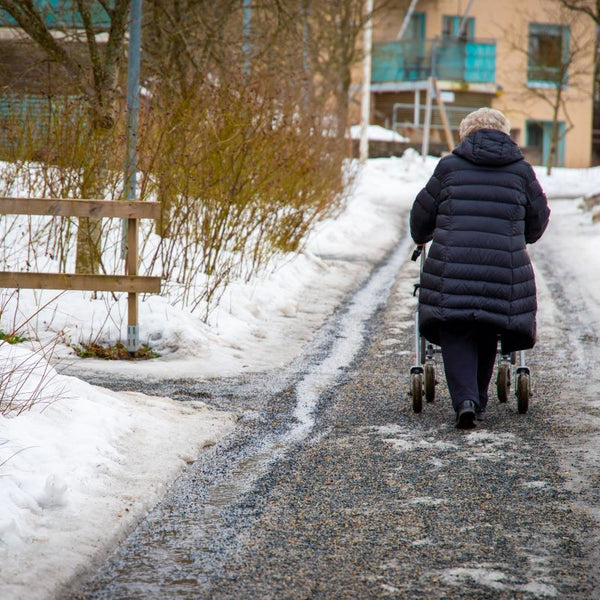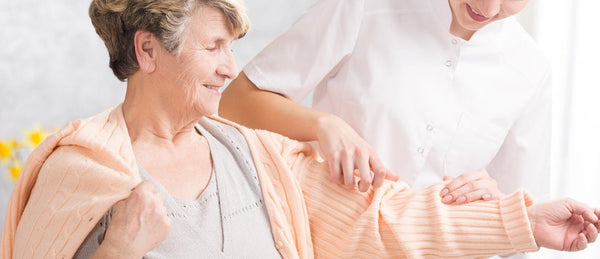We want you to feel empowered and independent so you can enjoy life in your own home for longer. With 24/7 support and telecare services available at the touch of a button, we’re here to ensure that your home remains your haven.
In fact, 87% of customers say our personal alarm service has helped them remain independent.
Setting up the personal alarm service is simple to do and does not require any technical knowledge or specialist equipment.
The alarm base unit needs to be connected to a telephone and power socket, providing a 24/7 connection to Taking Care’s UK-based monitoring service. After connecting the alarm unit, make a test call and the emergency response team will check everything is working OK.
Wearing the personal alarm pendant
The personal alarm itself is a lightweight telecare device that can be worn discreetly like a watch around the wrist or as a pendant necklace and helps elderly loved ones remain independent, in the home they love, for the price of a cup of coffee each week.

Using the personal alarm
If an alarm user ever feels unwell, suffers a fall or other medical emergency, they can press the button on their emergency alarm for the elderly any time of the day or night, which then contacts the response team.

The team can tell who is calling and know where the alarm user lives. They will have any previously shared medical information to hand, so they can respond quickly and appropriately to the situation.

Getting help in an emergency
The response team are able to talk to the alarm user through the speaker in the alarm’s base unit. They will then assess the situation, provide advice and escalate the call if further assistance is needed from the emergency services. Even if the alarm user is unable to communicate with the response team, they are able to identify who is on the call and where they are.

If the incident does require further assistance the response team will alert the alarm user’s nominated contacts, who typically are family members, neighbours or friends, who can then directly respond to the situation.
If the response team was unable to reach a nominated contact, or if medical assistance is required, they will contact the emergency services on the alarm user’s behalf.
If the personal alarm user has installed a key safe, the response team will provide the emergency services with the code for the key safe so they can quickly access the property without causing any damage.




